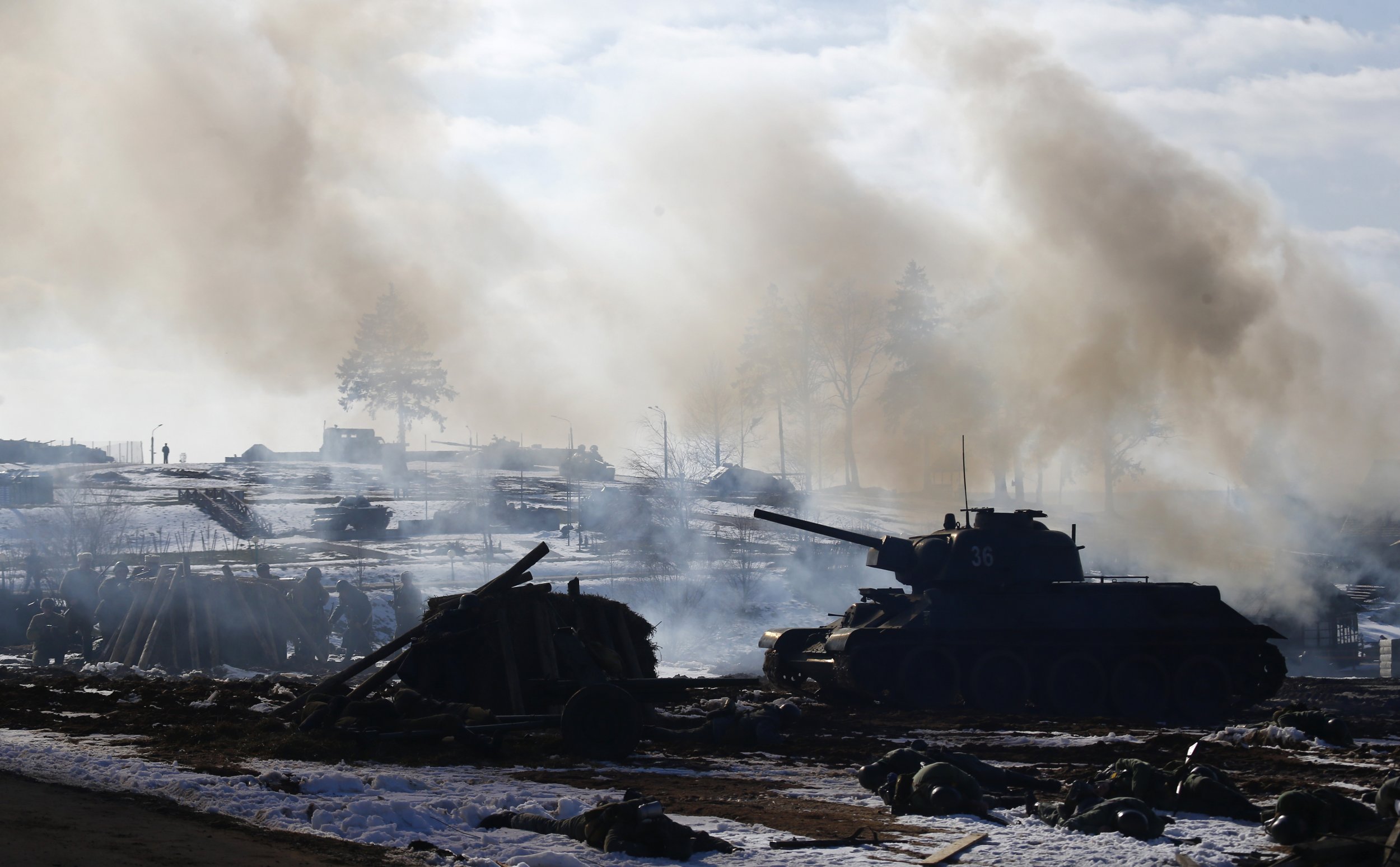
A 30-ton warship wreckage sunk during one of the great turning points of World War II has finally been found and recovered in Russia's Volga River.
The Soviet gunboat had laid on the bottom of the river for decades after falling prey to Nazi fire during the siege of Stalingrad—one of the most grueling battles in history, with total casualties nearing 2 million people.
Buried completely into the seabed of the Volga, the vessel only grabbed the attention of local authorities by accident, after a recreational diver reported the curious sighting two years ago. Regional authorities announced in a statement on Sunday that they had fully recovered the vessel, along with helmets, bullets, coins and other artifacts from the war, ready for restoration.
The BK-31 ship, nicknamed the "waterborne tank" because of its use of a cannon, identical to that on the T-34 tank, sank during the most critical point of the seven-month-long battle for Stalingrad. The Soviet military lost the vessel in October 1942, when Nazi forces had pressed the Red Army so far back that ground-based German artillery coming from the west was hitting ships in the Volga River—situated in the city's far east.
"Its construction has been broken in three, it is covered in rust and there are numerous punctures," Dmitry Kabelkov, head of the contractor carrying out the recovery, told state news agency Itar-Tass on Monday. "It is obvious it came under enemy machine gun and mine-thrower fire."
The 13-crew boat originally weighed no more than 30 tons, but the weight of the wreckage multiplied five times by the amount of sand in and around its parts, Kabelkov said.
Со дна Волги подняли бронекатер времен Сталинградской битвы: https://t.co/dO8MnkcSZR pic.twitter.com/sGId43mTo2
— zvezdanews (@zvezdanews) November 5, 2017
"The uniqueness of the operation was the fact that the gunboat that was fully buried in sand was dug up and then cleaned completely underwater. We discovered that it was broken into three and thanks to that consideration we could lift it entirely," the contractor said.
Once restored, the ship is set to find a new home in the Battle of Stalingrad museum in the city, now called Volgograd. Named after Soviet leader Joseph Stalin from 1925, the city became Volgograd in 1961, when then-leader Nikita Khrushchev attempted to remove many elements of the cult of personality around the brutal dictator.
Stalin's wartime leadership is celebrated in Russia more and more, encouraged by Russian President Vladimir Putin. But his repressive campaigns against millions of his own citizens, including labor camp sentences, executions of suspected dissenters and man-made famine made him unpopular in many former Communist countries that fell victim to the persecution.
Despite Khrushchev's de-Stalinization policies choosing to name the city for the Volga River that runs through it, there are prevalent initiatives to restore its wartime name.
The city's authorities have vowed to name the new airport "Stalingrad" next year, in honor of the 75th anniversary since the end of the battle.
Uncommon Knowledge
Newsweek is committed to challenging conventional wisdom and finding connections in the search for common ground.
Newsweek is committed to challenging conventional wisdom and finding connections in the search for common ground.
About the writer
I am a Staff Writer for Newsweek's international desk. I report on current events in Russia, the former Soviet Union ... Read more
To read how Newsweek uses AI as a newsroom tool, Click here.






